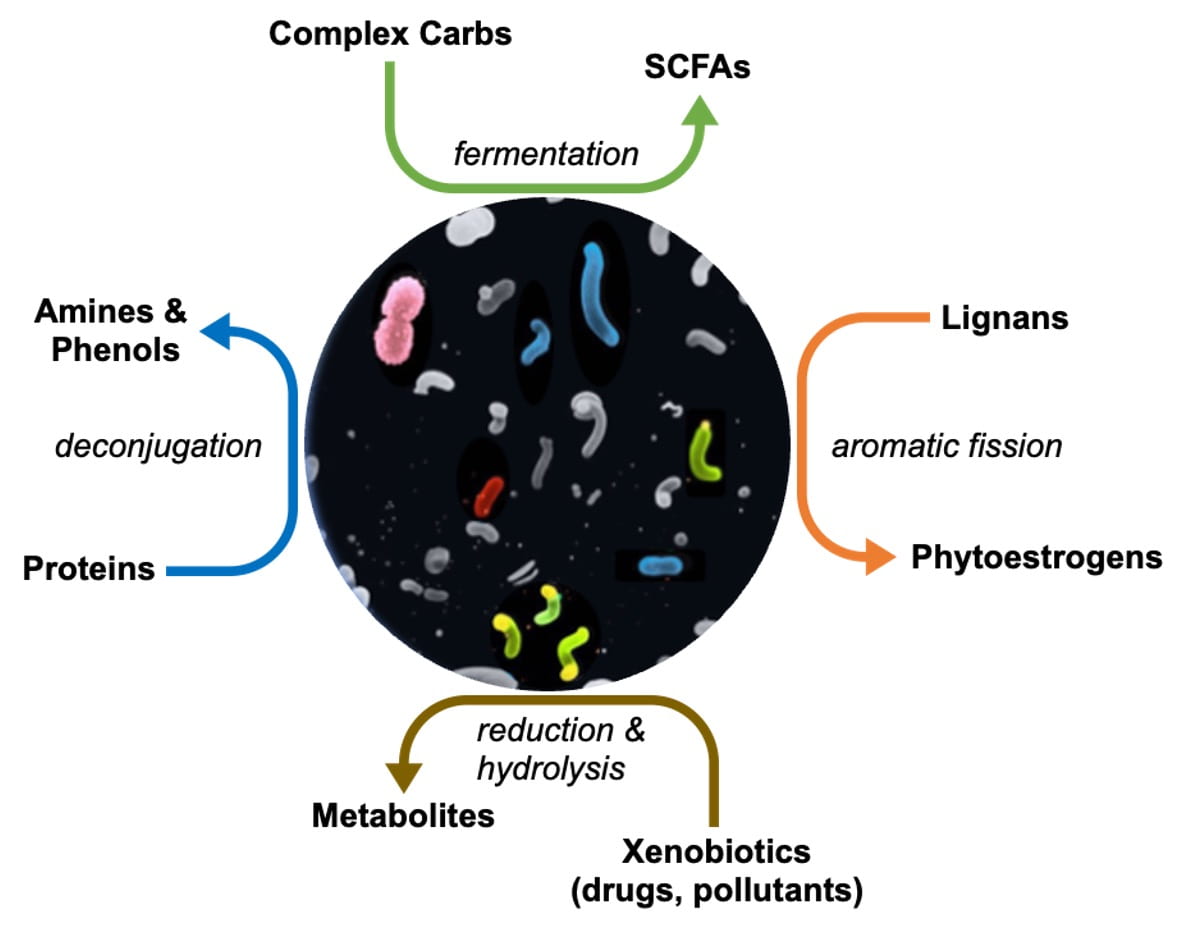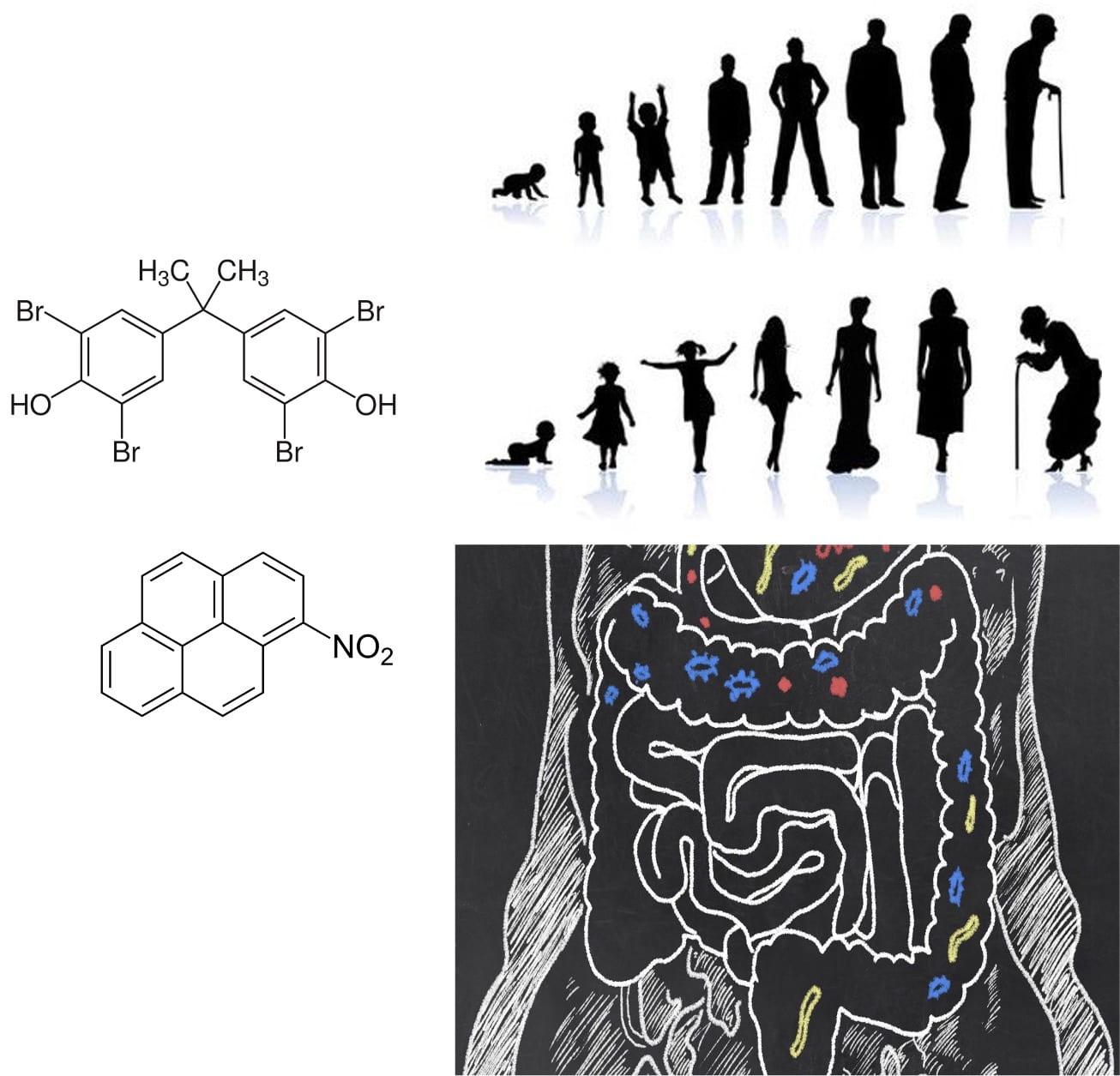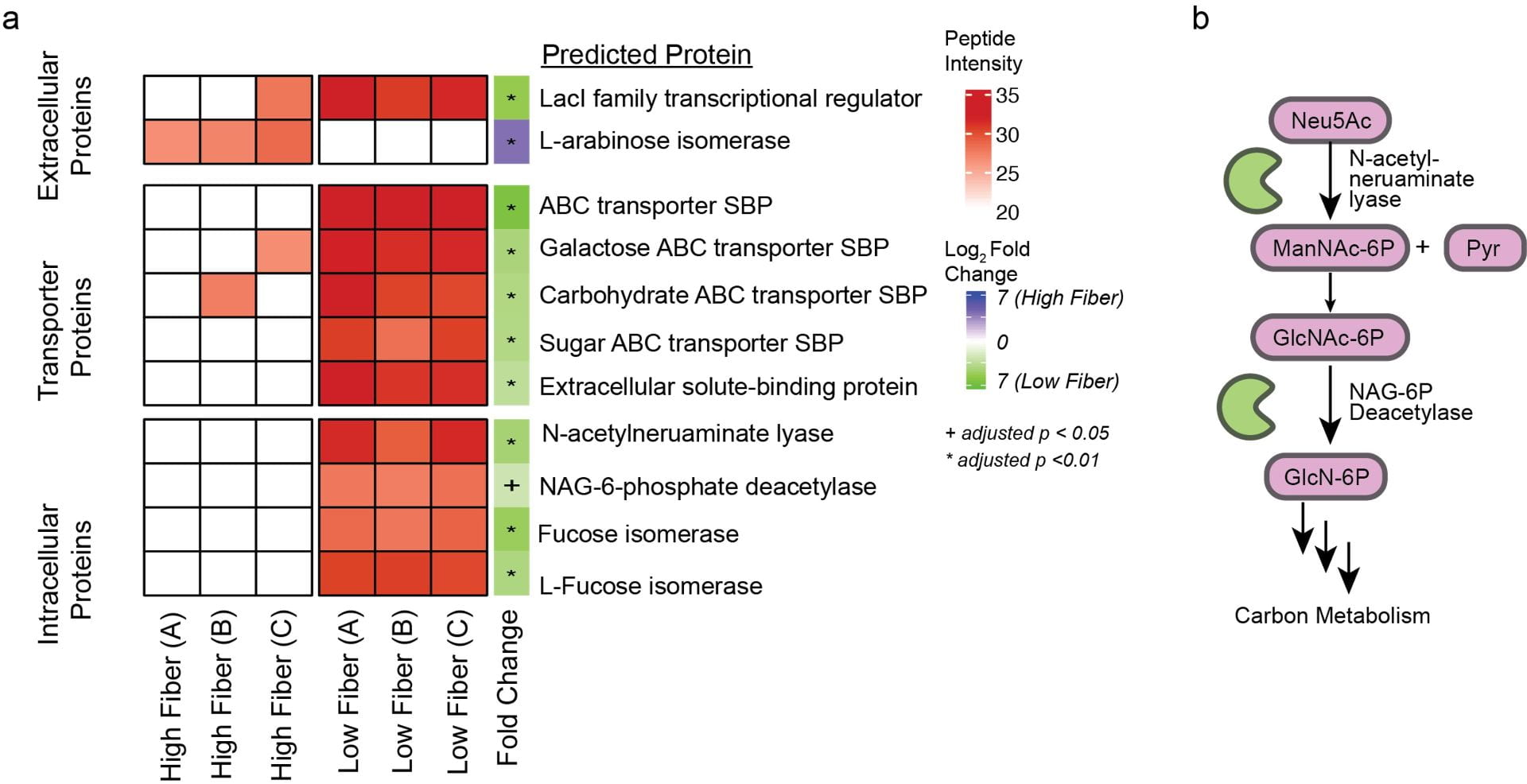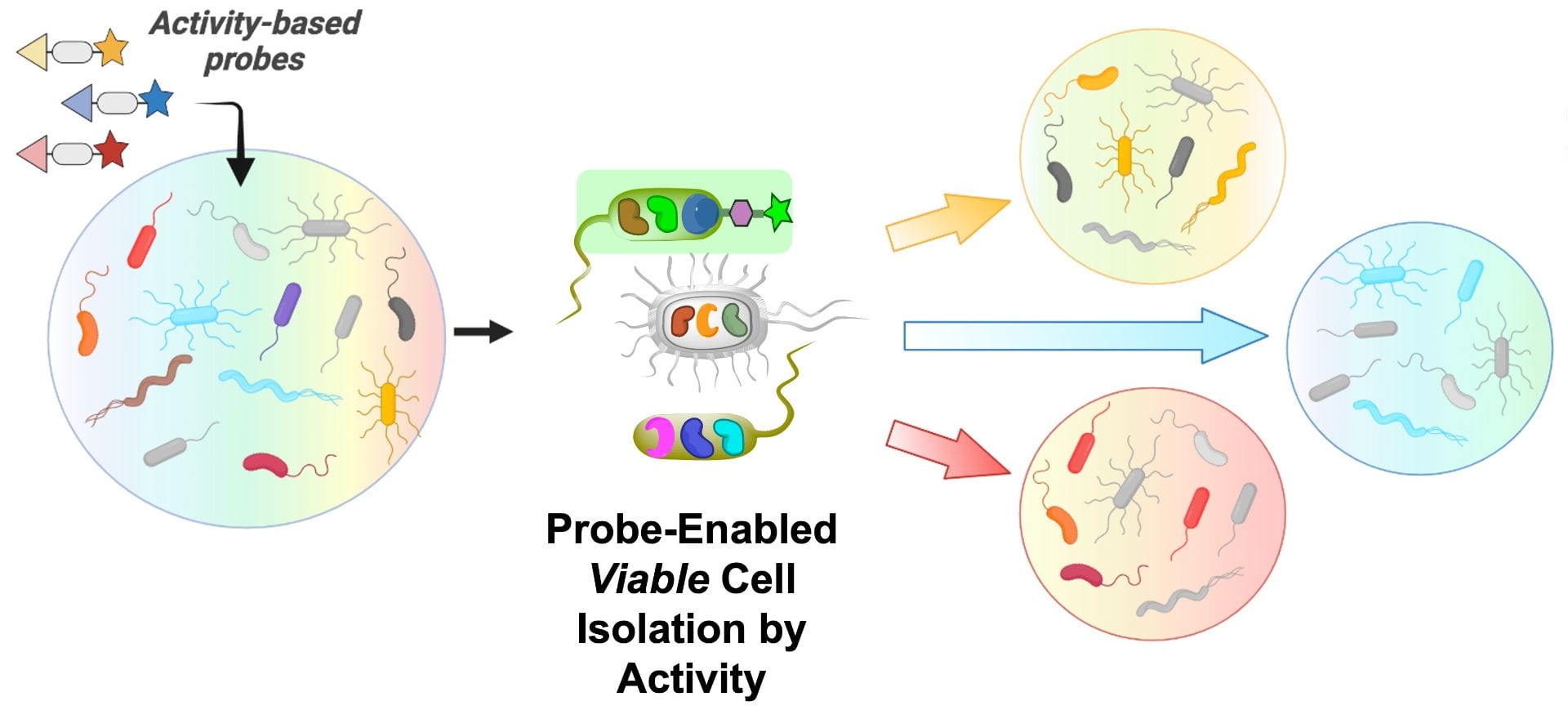Our research

Profiling Microbial Biochemical Functions
The functional composition of the gut microbiome can determine the balance between beneficial and harmful chemical conversion performed by microbes. We are developing and applying chemical biology and functional omics approaches to characterize how microbial enzyme activities are altered as a result of disease, drugs & xenobiotics, diet, stress, and other exposures.

Drug & Xenobiotic Metabolism at the Host-Gut Interface
Biochemical activities of the gut microbiome are both impacted by and directly influence drug and xenobiotic metabolism. We are studying functional redundancy, individual variability, susceptibilities, and impacts of various exposures on the drug and xenobiotic metabolism chemistries of the gut microbiome.

Polycyclic Aromatic Hydrocarbon Exposures During Development
PAH exposures are a worldwide problem from pollution that can cause severe gastrointestinal issues. We are characterizing the impact PAHs have on gut microbiome biochemical activities throughout mammalian development, and determining the mechanisms by which PAHs lead to poor health outcomes.

Carbohybrate and Mucin Metabolism
Dietary fiber is associated with beneficial health outcomes. The gut microbiome plays important roles in the metabolism of complex carbohydrates and their subsequent fermentation to short chain fatty acids. Dysregulation of microbial activities can result in poor carbohydrate metabolism, mucin foraging, increases in inflammation, and symptoms of irritable bowel diseases. We are studying the mechanisms by which microbes perform carbohydrate and mucin metabolism, and how chemical exposures and disease alter these activities.

PhenoSelection – Probe Enabled Viable Cell Isolation
We are developing novel approaches deploying chemical probes that select for specific biochemical activities to isolate, by function, individual microbes from complex communities. This work has the potential to enable the formation of phenotype-enriched communities for various industrial, agricultural, and health applications, to improve deep analysis of phenotype-associated microbes, proteins, and metabolites, and to enable opportunities for synthetic biology in microbes and microbial consortia.

Development of Novel Probes & Approaches in Chemical Biology
We are constantly seeking to advance the frontiers of understanding biochemical activities and mechanisms in complex microbiomes. This requires development of new chemical probes by synthetic chemistry, and new approaches to deploy and analyze probe binding by mass spectrometry, imaging, cell sorting, etc…
